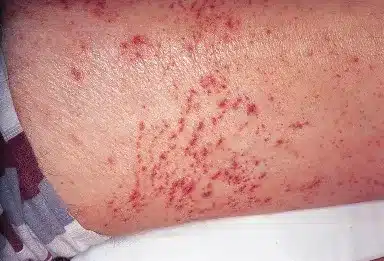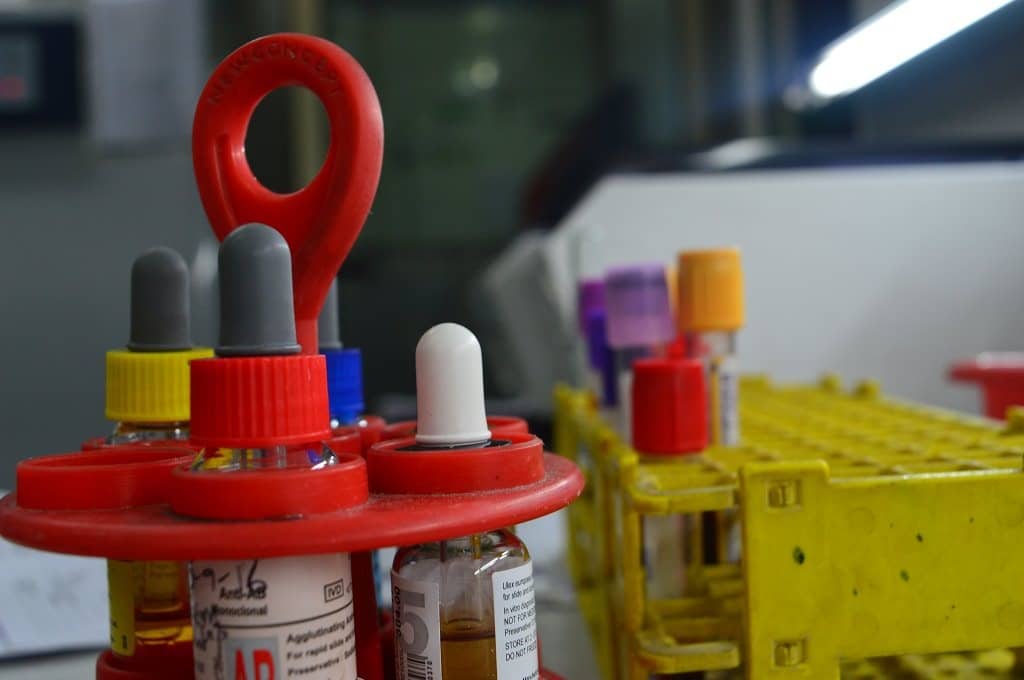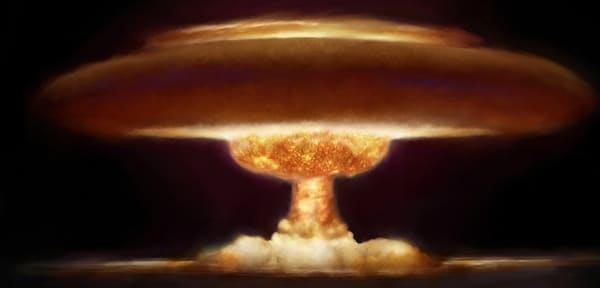About Thrombotic Thrombocytopenic Purpura (TTP):
- It is a rare, life-threatening blood disorder.
- “Thrombotic” refers to the blood clots that form.
- “Thrombocytopenic” means the blood has a lower-than-normal platelet count.
- “Purpura” refers to purple bruises caused by bleeding under your skin.
- In TTP, blood clots form in small blood vessels throughout your body.
- The clots can limit or block the flow of blood to your organs, such as your brain, kidneys, and heart. This can prevent your organs from working properly and damage your organs.
- The increased clotting that occurs in TTP also uses up your platelets. Platelets are tiny blood cells that help form blood clots. These cell fragments stick together to seal small cuts and breaks in your blood vessels to stop bleeding.
- When your platelets are used up, you do not have enough platelets to form blood clots when necessary. This can cause internal bleeding, bleeding underneath the skin, and other bleeding problems.
- What causes TTP?
- TTP occurs when you do not have the right amount of an enzyme (a type of protein in your blood) called ADAMTS13.
- This enzyme controls how your blood clots. If you do not have enough ADAMTS13, your body makes too many blood clots.
- TTP can be inherited or acquired.
- TTP usually occurs suddenly and lasts for days or weeks, but it can continue for months.
- TTP can also cause red blood cells to break apartfaster than your body can replace them. This leads to a rare form of anemia called hemolytic anemia.
- Symptoms of TTP may include any of the following:
- Bleeding into the skin or mucus membranes
- Confusion
- Fatigue, weakness
- Fever
- Headache
- Pale skin color or yellowish skin color
- Shortness of breath
- Fast heart rate (over 100 beats per minute)
- TTP can be fatal. Without treatment, it can cause long-term problems, such as brain damage or a stroke.
- Treatment: Plasma treatments and medicines are the most common ways to treat TTP. If these treatments do not work, you may need surgery.
Q1: What are red blood cells (RBCs)?
A type of blood cell that is made in the bone marrow and found in the blood. Red blood cells contain a protein called hemoglobin, which carries oxygen from the lungs to all parts of the body.Oxygen turns into energy and your tissues release carbon dioxide. Your red blood cells also transport carbon dioxide to your lungs for you to exhale.
Source: Inactivated COVID-19 vaccine CoronaVac associated with TTP
Last updated on June, 2025
→ UPSC Notification 2025 was released on 22nd January 2025.
→ UPSC Prelims Result 2025 is out now for the CSE held on 25 May 2025.
→ UPSC Prelims Question Paper 2025 and Unofficial Prelims Answer Key 2025 are available now.
→ UPSC Calendar 2026 is released on 15th May, 2025.
→ The UPSC Vacancy 2025 were released 1129, out of which 979 were for UPSC CSE and remaining 150 are for UPSC IFoS.
→ UPSC Mains 2025 will be conducted on 22nd August 2025.
→ UPSC Prelims 2026 will be conducted on 24th May, 2026 & UPSC Mains 2026 will be conducted on 21st August 2026.
→ The UPSC Selection Process is of 3 stages-Prelims, Mains and Interview.
→ UPSC Result 2024 is released with latest UPSC Marksheet 2024. Check Now!
→ UPSC Toppers List 2024 is released now. Shakti Dubey is UPSC AIR 1 2024 Topper.
→ Also check Best IAS Coaching in Delhi
























